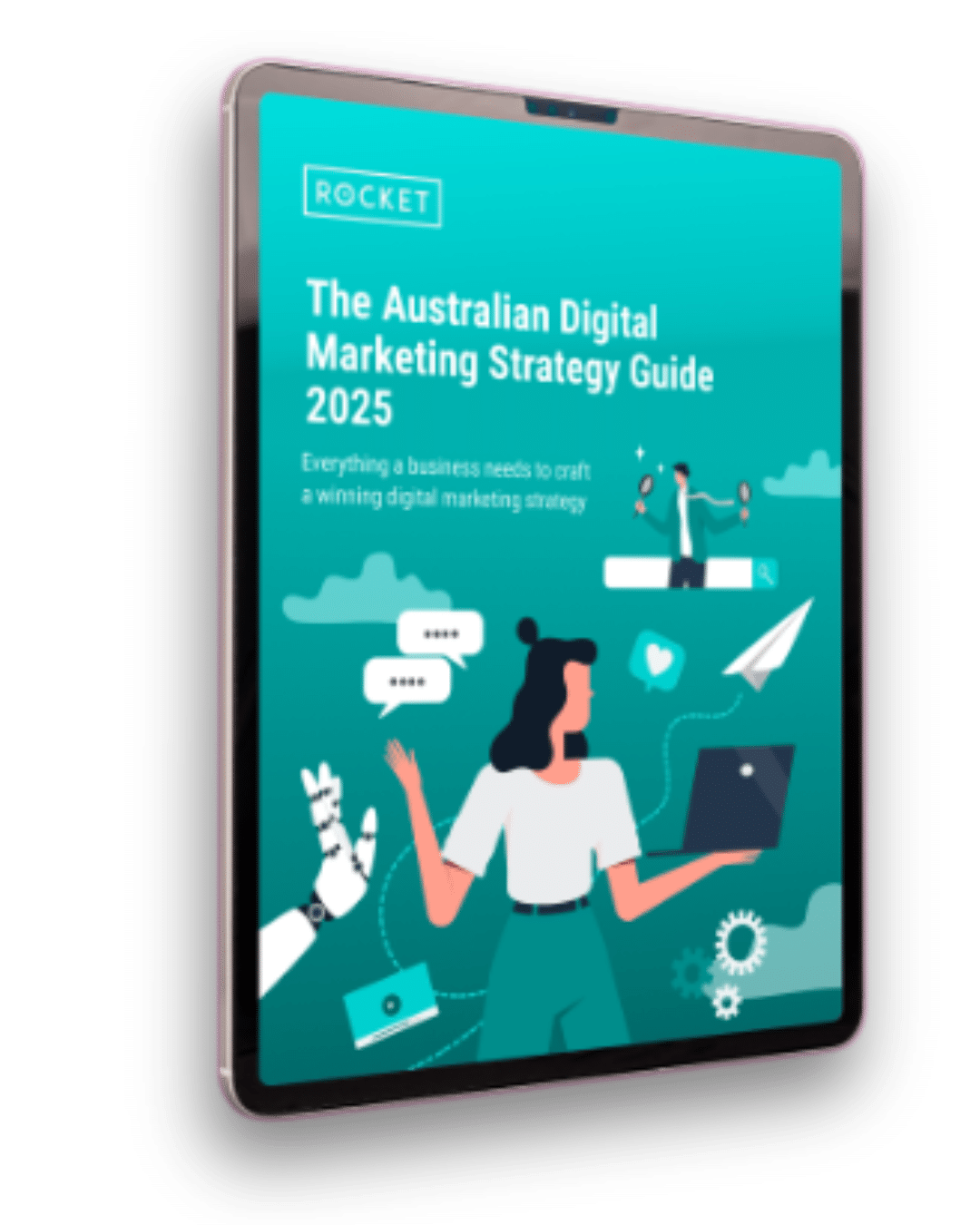Competitor Research: 5 Steps to Being the Best Marketer in your Industry
In my opinion, competitor research is one of the most powerful marketing tools available. It’s also one of the tools least used by marketers, which gives you a huge advantage if you do it properly.
Best of all it’s free, simple and fast and will make you faster and more efficient in your future efforts when building campaigns, creating content or making decisions. Read on to level up your marketing.
The purpose of competitor research is for you to see what the best companies in your space are doing, so you can make informed decisions around how to compete with them or learn from them.
There are many ways to approach competitor research. Here’s a simple approach we find incredibly effective when starting work for a new client.
1. Build a list of websites
Always start here. You need to build a list of websites and companies you will base your research on. Companies to consider fall into three groups:
1. Direct competitors: This includes companies you compete with in your sales efforts. It also includes the companies you compete with via digital channels - who appears in Google when doing branded or non-branded searches in your area?
2. Similar companies in other locations: This includes companies just like you, but whom you don't directly compete with because they are in different locations or markets. This can be in other parts of Australia or internationally. For many businesses, you want to look to the US, UK, Canada, NZ etc where many industries are very similar to Australia. The company doing the best job at marketing themselves is unlikely to be the one just around the corner.
3. Non-competitors targeting similar personas: These are companies who market to your clients' personas but offer a different product or service. You'll never compete against them, but you might be able to learn from them.
Depending on your industry and the level of competition you should aim to build a list of 10 - 20 quality websites to review. Only include poor-quality campaigns/websites in this list if they are very significant competitors and you therefore want to keep an eye on them. Otherwise, you want a list of companies doing strong work in their digital presence and marketing. Always learn from the best.
Here are some tips on how to build your list:
- Speak to your sales team and ask about the competitors that are most often mentioned by prospects. You should also ask about lost sales and find out which competitors these sales go to.
- Ask other people within your company about who they consider the quality companies in your space to be.
- Go online and search for your key terms. Who comes up in paid search? Who comes up organically? Visit their site and see what they are doing.
- You should also do online searches for your brand name. Are there any companies bidding on it? They are identifying themselves as a competitor.
- The more you research and visit competitor websites, the more likely you are to see remarketing and display ads from competitors or related companies. Who’s doing a good job at remarketing?
- Use research tools to speed up your research efforts (more on this later).
2. Cull your list
First, manually explore your competitor’s websites. Unless they are a significant direct competitor, you should close their tab if they are approaching digital poorly.
For the websites which remain, bookmark them and save them in a folder in your browser. This is important as it means you can return to these sites quickly and easily in the future. Research is a process, not a one-off event.
3. Gap analysis - design, messaging and offers
The next step is to spend a bit of time on each site. What is the quality like on these sites? How do you compare? How do other companies address the prospect? What sort of language and words do they use? How do they paint the picture of the prospect’s pain, and the solution? Basic research can help you better understand your own prospects or see angles you would not have considered otherwise.
What are the headlines on key pages? Are there interesting offers they are making? CTAs? What sort of topics are competitors writing about in their main pages and blogs? How does it differ to you?
Do your competitors have brilliant websites and your own website is terrible? This could be a future conversion killer. Do you stand alone in terms of the language you are using - is this a good thing or a bad thing?
4. Gap analysis - ads, creative and more
Once you know the best quality companies you need to do a deeper dive:
- What are they doing with search ads, video ads, display banners, and more in their ad campaigns?
- How do they rank organically on a wide range of keywords?
- Where do they get most of their traffic from, including estimates of their traffic levels compared to yours?
- Find their key landing pages. What are they saying in them?
- What is their content strategy? What are they writing about?
- How are they approaching social media?
- How much are they spending on paid media for traffic?
There are lots of tools we use which greatly assist in answering the above questions. A few we can recommend include:
For a deeper look into competitor research for ads and creative, read our article on 5 ways your competitors can help your Google Ads campaigns be more successful.
5. Record what you've learnt and check back often
If all you do is follow these steps, make a series of decisions and then move on and quickly forget everything, you are making your life a lot harder than it needs to be.
You need to record everything you have learnt. You should then come back to this when you are looking for inspiration. Open all the sites again - what's changed? If you take this seriously, you'll get new ideas incredibly quickly in the future.
Our challenge to you
If you’ve got this far, you’re probably thinking this sort of research is a pretty good idea. You might even be thinking it could really impact the return you get from your marketing efforts (you’d be right).
Do you know what’s sure to make it completely ineffective for you? Not actually doing anything about it!
So, before you get distracted, why not put aside the next 30 minutes and make a start on the above steps. I can all but guarantee you will be impressed by what you learn.
At Rocket, competitor research and analysis is a natural part of our process whenever we onboard new clients. If you need help building a competitive digital marketing strategy, contact our team and we’ll sort you out.

Webinar: Digital Marketing in Australia
Join us for a live, moderated 60-minute webinar presented by James Lawrence on the latest changes to digital marketing. Understand attribution and data challenges, AI and how to balance brand and performance ads. Get 8 actionable steps to get digital right this year.
About the Author

David Lawrence is the MD and Co-Founder of Rocket, an award-winning Australian digital marketing agency. He is also the co-author of the Amazon #1 best-selling marketing book 'Smarter Marketer'. David has presented at several events including Inbound, Search Marketing Summit, Mumbrella360, CEO Institute and a variety of seminars and in-house sessions.
David has built his expertise from a diverse career, starting with an economics degree before jumping into all things web in the late 90s.
Today, David is Rocket's Managing Director and is known for his ability to find clarity in the bigger picture. He is highly respected as a digital marketing authority, sharing his expertise with an extensive network here in Australia and around the world.

Join 20,000+ subscribers
Get fast, useful and no-nonsense weekly emails on the most relevant marketing topics for Australian businesses.
Other Articles you might be interested in…

The Australian
Digital Marketing Strategy Guide
Everything an in-house marketer needs to craft a winning digital marketing strategy.








































